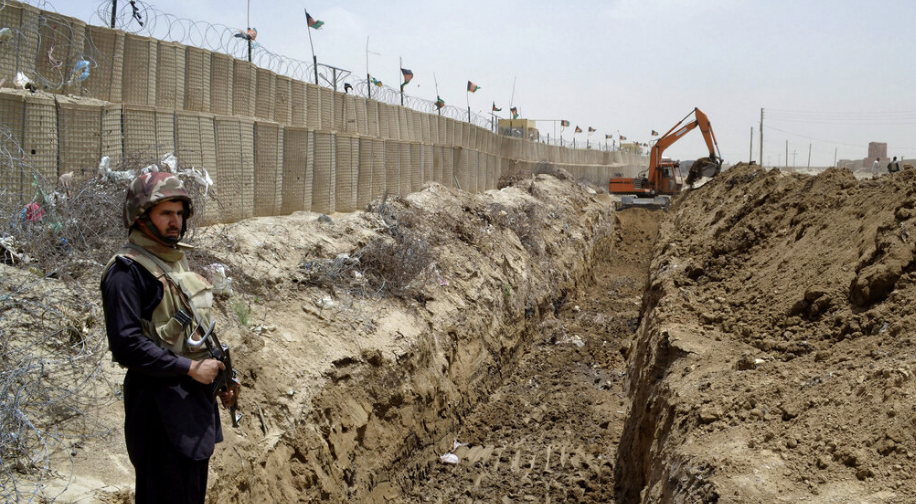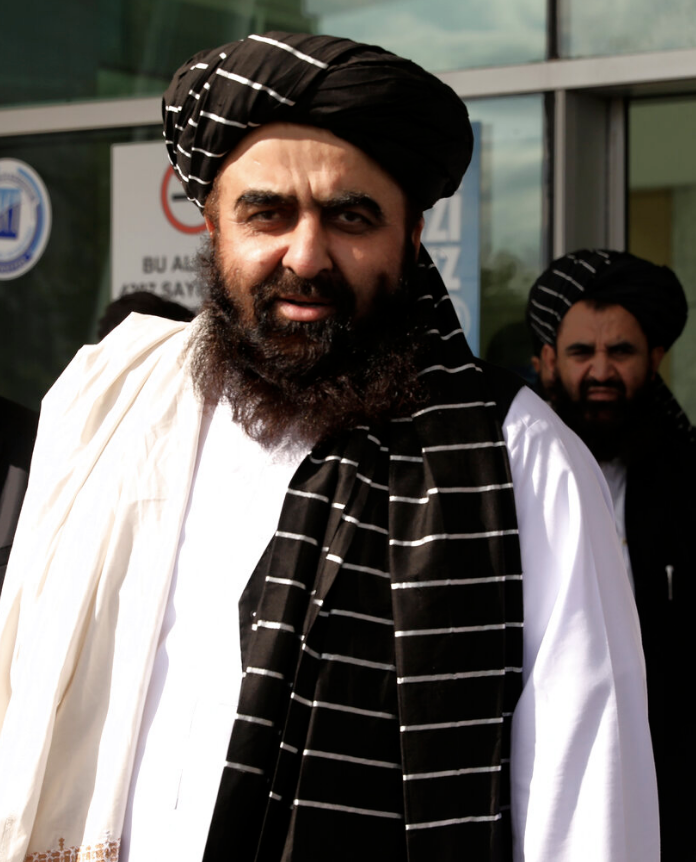Taliban-Pakistan Ceasefire Officially Ended After Five Months of Discussion
Pakistani border guard on watch as trench is dug along Pakistan Afghanistan border at Chaman border crossing. Picture taken May 16, 2014. Photo: Matiullah Achakzai / AP
The Tehreek-e-Taliban Pakistan (T.T.P.), the Pakistani branch of the international Taliban movement, announced on Nov. 28 that it would end the uneasy indefinite ceasefire with the Pakistani government agreed to in June of this year. Continued attacks by the Pakistani military intent on rooting out insurgents allied to the T.T.P. was cited as the reason for the resumption of hostilities.
The T.T.P. urged members to resume terrorist and antigovernment activities in the statement, saying “As military operations are ongoing against mujahideen in different areas, … it is imperative for you to carry out attacks wherever you can in the entire country.” The T.T.P. includes not only official Taliban members but also a wide array of Sunni militant groups active in the Khyber Pakhtunkhwa province on the border with Afghanistan.
The T.T.P. and Afghan Taliban Government are separate but closely affiliated. When Afghanistan was taken over by the Taliban following the withdrawal of U.S. and N.A.T.O armies, the Pakistani Taliban forces found refuge and protection within Afghanistan from the Pakistani government. The Afghan Taliban government had been facilitating the five-month ceasefire between the T.T.P. and Pakistan by hosting them in their capital city of Kabul.
The Afghanistan Taliban and Pakistan have long been partners, with Pakistan being one of only three countries to formally recognize and support the Taliban government in 1996. Though Pakistan has never admitted this, evidence exists that shows the country heavily supporting the Taliban. Additionally, Pakistan may have had a hand in its creation in the first place, as well as its continued existence in the 21st century.
Amir Khan Muttaqi, the acting foreign minister of Afghanistan's Taliban led government. Picture taken in Ankara Turkey, Thursday, Oct. 14, 2021 Photo: Burhan Ozbilici / AP
Hina Rabbani Khar, Pakistan’s minister of state for foreign affairs, traveled to Kabul to meet in person with Afghanistan’s acting foreign minister, Amir Khan Muttaq, on Nov. 29– only a day after the T.T.P. announcement and heightened border tensions. The vague summary of the meeting released by Pakistan's foreign ministry states, “A range of bilateral issues of common interest including cooperation in education, health, trade and investment, regional connectivity, people-to-people contacts and socioeconomic projects were discussed.” It is unclear whether issues related to the T.T.P. were discussed, though given the timeliness of the visit, that is highly likely.
The tangled web of alliances, support, hatred, attacks, ceasefires, funding, and cultural disagreements between Afghanistan, Pakistan, and the T.T.P. is currently on full display. It is unclear whether hostilities will continue to increase or what kind of agreements can be reached. It is in the interest of all parties to stop the bloodshed, but ideological and historical grievances continue to plague the region and permanent peace is not within sight for the region.


